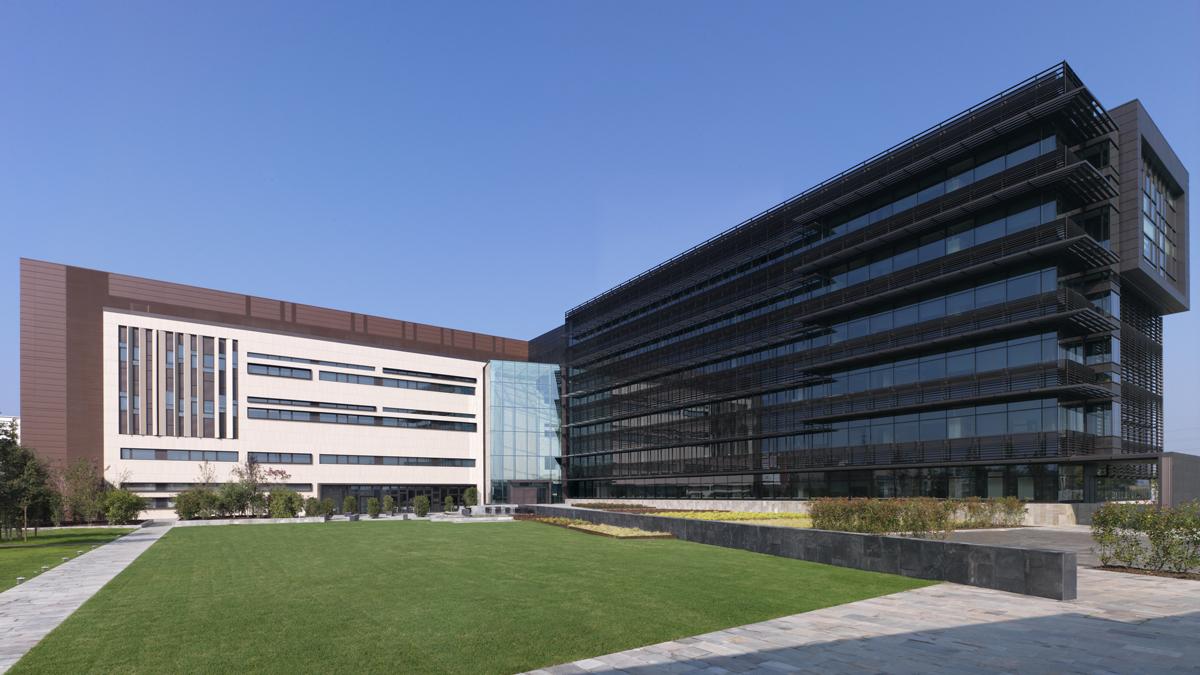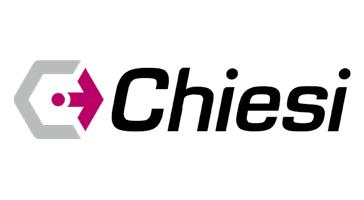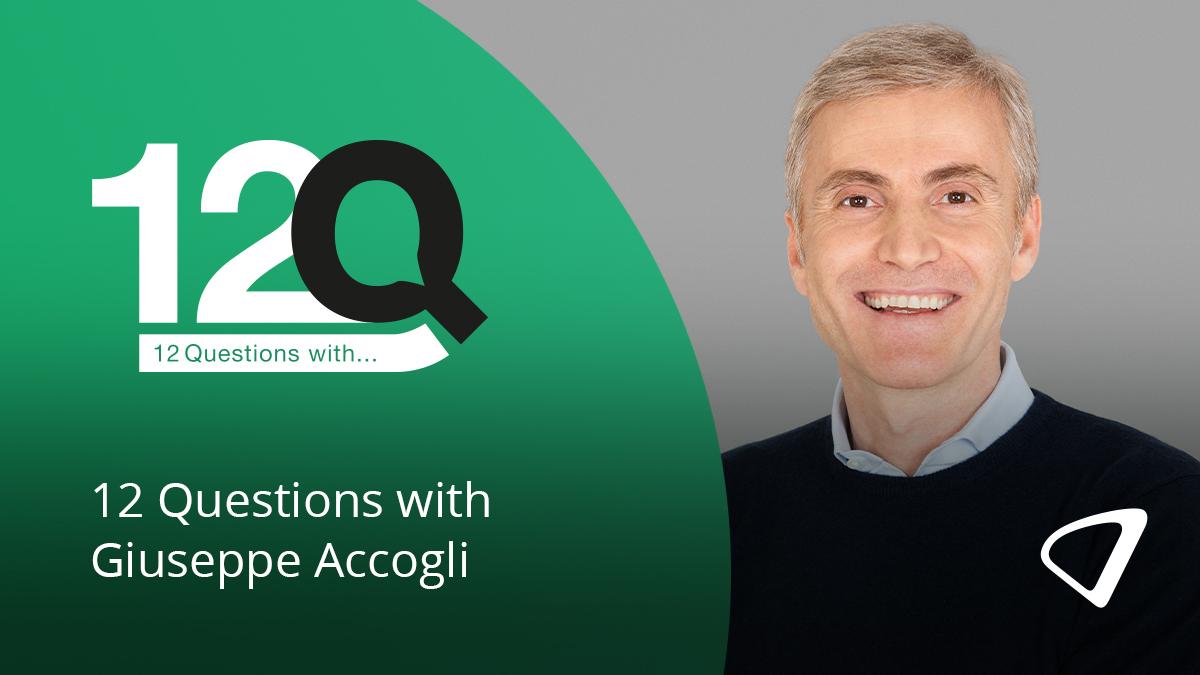How Chiesi is walking the walk on pharma sustainability

In an age of greenwashing, where ESG (environmental, social, governance) increasingly feels like a corporate buzzword, how do you find the companies that are not only talking the talk, but walking the walk?
You have to look for organisations that are making significant investments in sustainability at every level of their business. That’s one way that Chiesi Group – an Italian family business-turned-global pharma company – seeks to define itself. A Benefit Corporation since 2018 and a Certified B-Corp since 2019, as well as an EcoVadis platinum medal recipient, the company prides itself on - to use the company’s own campaign terminology - action over words.
“It’s one thing what you say. But the other thing is what you do and I think that walking the talk has been something that I have seen with Chiesi since I started in January,” Dr Michelle Soriano, who recently joined Chiesi as head of the respiratory franchise, told pharmaphorum. “It's really embedded into the core decision-making of the company at all levels.”
The company has an ambitious goal of achieving net zero greenhouse gas emissions by 2035. By 2023, they successfully reduced scope 1 and 2 greenhouse gas emissions by 39% compared to a 2019 baseline.
Balancing patient care and sustainability
What does that embedded sustainability mindset look like in action? One example is the company’s €350 million investment in new inhaler technology.
In 1987, the Montreal Protocol made history as the first universally ratified treaty in United Nations history. In a high-water mark for international cooperation, all the countries of the world came together to ban chlorofluorocarbons (CFCs), substances used in refrigeration, hairspray, and – yes – asthma and COPD inhalers, which were largely responsible for the hole in the ozone layer. Thirty-seven years later, there’s concrete evidence that the hole in the ozone layer is shrinking because of this unprecedented agreement.
The substitute for CFCs that emerged in the pharmaceutical space, hydrofluorocarbons or HFCs, don’t deplete the ozone layer. But, in the years following the Montreal Protocol, it became increasingly clear that they are potent greenhouse gases, contributing to global warming. So, hoping to repeat history, the UN passed the Kigali Amendment to the Montreal Protocol to phase down the use of HFCs as well, encouraging the shift from HFCs with high impact on climate to HFCs or alternatives with a much lower global warming potential.
Both the Montreal Protocol and the Kigali Amendment present a challenge for pharma companies when it comes to the pressurised metered dose inhalers (pMDIs) used to treat asthma and COPD. Changing the formula for hairspray is one thing; messing around with life-saving medication is another. Some patients can safely use alternative inhalers, like dry powder inhalers (DPIs), but some patients, as in some cases of the very old or very young, cannot.
Taking the lead among pharma companies
Chiesi has taken the lead in making an upfront investment in a new platform of inhalers, called the carbon minimal inhalers, which has completed a number of trials, including two short-term clinical safety trials, and its phase 3 safety trial is underway.
“This innovative approach is expected to reduce the carbon footprint of the current inhaler that we have by up to 90% by replacing the propellant it contains with another low global warming potential alternative, which we call HFA152a,” Dr Soriano said.
The company is committed to maintaining patient experience, including efficacy, safety and usability, and patient choice, as well as producing quality products. So, it needs to develop an inhaler that works just as well for the patient, but simply doesn’t have the same environmental impact.
“That's the first consideration, for them to get their medication and be controlled,” Dr Soriano said. “The next step is to ensure that the product has a reduced impact on the climate. That's why we're transitioning to this new propellant with a better low global warming potential. Patients will still access the range of treatments they need, but it would be better for the environment.”
Extending commitments to pharmaceutical industry partners and suppliers
No company is an island, and Chiesi’s commitment to sustainability would ring hollow if it didn’t hold its manufacturing, API, and pharmaceutical packaging suppliers, as well as its partners, to the same standards.
To this end, the company partners with EcoVadis to evaluate the environmental and social performance of the supply chains it works with.
“It’s not only what we do, but also who we work with. So, this commitment has earned Chiesi a prestigious EcoVadis platinum medal in 2023,” Dr Soriano said.
That means the company is in the top 1% of all companies evaluated by EcoVadis.
As for partners, Chiesi has been embarking on a number of partnerships as it endeavours to increase its global footprint: they’re working with China’s Haisco Pharmaceutical on treatments for bronchiectasis, with California’s Gossamer Bio on pulmonary hypertension associated with interstitial lung disease, and with Sweden’s Affibody on innovative treatments for respiratory diseases.
Dr Soriano says that, through these partnerships, Chiesi shares its culture, vision, and values, trusting that its partners embrace a similar outlook. It also provides its Code of Interdependence to the companies it collaborates with.
ERS Preview: Patient education, trial innovation, and industry advocacy
Chiesi is currently presenting at the European Respiratory Society Congress in Vienna, Austria. The company sees the conference as an opportunity to further showcase and enact its values in a number of ways, Dr Soriano says. And it begins with a public awareness campaign around Vienna and on social media, aimed at educating the public about asthma and COPD by telling real-life patient stories.
“As you know, asthma and COPD are prevalent diseases, and a significant portion of the population may not realise their condition is uncontrolled and that they shouldn't feel as bad as they do," Dr Soriano said. "Additionally, asthma is often perceived as less severe than it can be. For COPD, many people remain undiagnosed and therefore untreated, leaving a huge unmet need.”
DCTs: A sustainability strategy
Additionally, the company is sponsoring two symposia focused on improving patient quality of life in asthma and COPD and will present during a poster session findings from the TANGO trial, where Chiesi is looking at patient acceptance of decentralised clinical trials (DCTs).
DCTs fit right in with Chiesi’s environmental and social goals because they promote clinical trial diversity and accessibility, while also reducing the carbon footprint of patients who no longer need to drive to clinical trial sites.
“As we think about diversity in our clinical trials, we need to get people from everywhere. And it's tough for them to travel, especially for COPD patients, and if they are elderly. But the more severe that you get, the older the population is, so mobility is an important topic,” Dr Soriano explained.
Indeed, since the pandemic, decentralised clinical trials have become considerably more commonplace. But that rollout was rushed, which means there’s been a limited opportunity to find out what patients think of these trials and the keys to positive patient experience.
“This approach is increasingly being adopted, yet it might be not so familiar to patients and, therefore, gathering these insights is crucial to facilitate a successful implementation,” Dr Soriano said.
Rallying other stakeholders in the pharma industry
Finally, Chiesi sees ERS as a great opportunity to engage with the larger ecosystem around respiratory disease and make sure it is a part of the industry-wide fight against climate change.
“Of course, it's also a massive opportunity for us to engage with stakeholders ranging from policymakers to regulators to experts and researchers about the experience patients have and how we can reduce the burdens that they're facing,” Dr Soriano said. “It's also a place where we can collaborate and talk about what’s important. Especially now, with the increased urgency to fight climate change and pollution. Both contributing to causing and worsening respiratory conditions, these diseases will be top of mind for regulators, as well as for the overall population.”
Sustainability by design
Chiesi has a clear philosophy of focusing on its values of patient-centricity and sustainability, and trusting that the benefits to the business will follow, Dr Soriano told pharmaphorum.
“We have unwavering commitment to a patient-centric care and to social and environmental sustainability that drives every aspect of our work in respiratory medicine,” said Dr Soriano. “We will continue to innovate with decentralised clinical trials to advancing carbon minimal inhalers, and we remain focused on improving patients’ lives. By prioritising healthier people and a healthier planet, our presence at ERS Congress in 2024 will also underscore dedication to leading future respiratory care.”
About the interviewee
 Dr Michelle Soriano – Executive Vice President, AIR Franchise
Dr Michelle Soriano – Executive Vice President, AIR Franchise
Bringing over 20 years' international experience working in top management consulting at McKinsey & Company and IQVIA and for the past decade worked in Sanofi’s commercial business, where she held a broad range of responsibilities in launch excellence, marketing, sales, and strategy and operations in three business units - Vaccines, General Medicines, and Specialty Care - working in four different countries - Mexico, France, Japan, and USA.
About Chiesi Group

Chiesi is research-oriented international biopharmaceutical group that develops and markets innovative therapeutic solutions in respiratory health, rare diseases, and specialty care. The company’s mission is to improve people’s quality of life and act responsibly towards both the community and the environment.
By changing its legal status to a Benefit Corporation in Italy, the US, and France, Chiesi’s commitment to create shared value for society as a whole is legally binding and central to company-wide decision-making. As a certified B Corp since 2019, we’re part of a global community of businesses that meet high standards of social and environmental impact. The company aims to reach Net-Zero greenhouse gases (GHG) emissions by 2035.
With over 85 years of experience, Chiesi is headquartered in Parma (Italy), with 31 affiliates worldwide, and counts more than 7,000 employees. The Group’s research and development centre in Parma works alongside 6 other important R&D hubs in France, the US, Canada, China, the UK, and Sweden.
For further information please visit www.chiesi.com











